Play
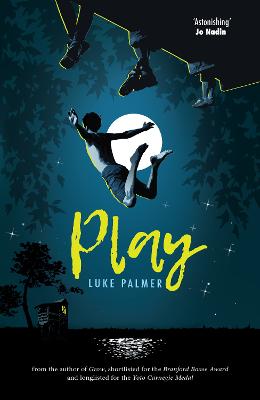
By Author / Illustrator
Luke Palmer
Genre
Personal Growth
Age range(s)
14+
Publisher
Firefly Press Ltd
ISBN
9781915444318
Format
Paperback / softback
Published
05-10-2023
Synopsis
Four boys grow up together at school, itching to get out of their small town. They play games, scoring points from each other, anything to pass the time until they're free. Matthew slips into his imagination, Luc pushes his body to the limit, and Johnny ... well who knows what Johnny's up to. But when Mark starts running errands for his older brother's mysterious associate, he thinks he's found the best game of all.
Author Luke Palmer introduces Play, and reads from a short section
By Luke Palmer: Play; Grow; Live
Reviews
Edward
After reading Luke Palmer’s debut novel for young adults, Grow, I was immediately eager to order his second book Play as soon as I could. Play tells the story of four boys at school - Matt, Mark, Luc, and Johnny. The biblical names seem to be deliberately chosen, as they, at least to begin with, seem content to follow each other. They enjoy common interests like building dens, doing dares, and all drinking the same, somewhat symbolic energy drink, 'Comeup', which seems to power them, often blindly, through moments of uncertainty and peril. The same frenzied, frenetic energy of coming-of-age teenagers is represented on every page of the novel.
The four boys are at a formative time in their lives when they are deciding where they fit into the world. Two things struck me immediately as I ploughed through the book. For one, I was impressed with the way Palmer managed to deftly delineate four distinct and naturalistic characters in the boys. Also the way in which he splits the chapters up so, despite the subject matter not being particularly comfortable, the reader can get to know the characters within their own headspace and explore their motivations and the various pressures that external forces in the world put on them all.
The troubles that the boys are facing are all commonplace - whether drug problems, parental abuse, or they are struggling with sexuality, or neurodiversity. I felt as a reader like I knew these lads, or at least had met people like them. Palmer manages to balance pathos, and lighthearted banter, never shying away from the seriousness of the situations and real-world consequences of the various actions of the characters, but also allowing the characters to mess around and create a natural feeling of young school buddies. If nothing else, you believe in the characters, and hurt when they do.
For me, the major theme of control stood out vividly. Moreover, the boys believing that they have control over aspects of their lives, when it is clear to the reader that they do not. Palmer manages to convey the youngsters' naivety when faced with difficult situations, whether that is trying to form a relationship in an inexpert, unhelpful perhaps 'toxic' way, or one of the lads believing that a situation is beneficial to him financially when in reality he is a cog in a bigger wheel. A range of difficult emotions is explored in the novel, and whether they are arrogant and full of bravado, or studious but still get caught up in scandal, or just in a daze, the core point is that these are young people - scared, vulnerable and just trying to do their best with the tools and parameters they have.
Crucially, the boys lack any good role models, and all get easily taken advantage of by unscrupulous or unfeeling adults without noticing any red flags until they are in peril. I think what I most enjoyed about the book was that I felt like I was on a rough journey with the characters into adulthood, and as an adult reader, I feel that this may be even more viscerally felt by a young person themselves. It mentions on the inside cover of the book that Palmer is a teacher, and I feel that he was very well-placed to tell this story, as his background in teaching lends an undeniable authenticity to the settings and characters.
I feel that this is not just a YA novel, but a book for readers of all ages and backgrounds, lending a hard-hitting and also playful social commentary, which could also steer youngsters away from burdensome or suspicious situations. While helpful characters are lacking, the book itself serves as a cautionary tale to be mindful of consequences.
302 pages / Reviewed by Edward Rouse
Suggested Reading Age 11+
Eileen
Play brilliantly captures the voices and stories of four very different teenage boys. Bored of their small town life and what little it seems to offer, the friends invent their own games to pass the time until they can get away, scoring points against each other. When one of them starts running errands for an associate of his older brother he thinks he's found the best game of all. Suddenly he has status, money, purpose… But when he breaks a rule and his life spirals down out of control, he realises that some games are more dangerous than others. This is no game, he's trapped deep in the county lines operation he's been groomed into joining, and his actions have serious consequences for others. Can he find a way out and, just as importantly, will his friends be there to help him?
This is, without a doubt, a difficult time to be a boy. The boys in this book: the artist, the athlete, the entrepreneur and the joker, brilliantly capture the mixed social messages around modern masculinity. There's more than one way to 'be a boy' and Palmer cleverly looks beyond the stereotypes, allowing all four to change and develop as their friendship grows, competing and measuring themselves against each other.
Palmer combines a teacher's insight and empathy for teenagers with a poet's way with words. These are realistic characters who leap off the page, telling their own stories through short, alternating chapters. These are characters you really care about as a reader; vulnerable, uncertain but often very funny too. They are resilient, understand the importance of play and connection, and are constantly there for each other in a harsh and complex world.
Tough to read in parts, timely and truthful, Play is a thought-provoking exploration of manipulation, masculinity and male friendship as well as family relationships and role models, sexuality, neglect and social expectations. The topical issues, authentic character voice and gritty reflection of reality make Play perfect for fans of Melvin Burgess, Brian Conaghan and Patrick Ness.
With county lines high on every school agenda, it is an important and insightful read for parents and educators as well as teenagers themselves. We need more books like it. It has the power to make the world a better place.
302 pages / Reviewed by Eileen Armstrong, school librarian
Suggested Reading Age 14+
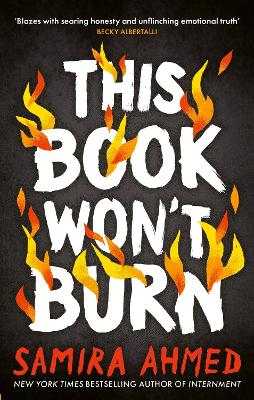 This Book Won't Burn
This Book Won't Burn
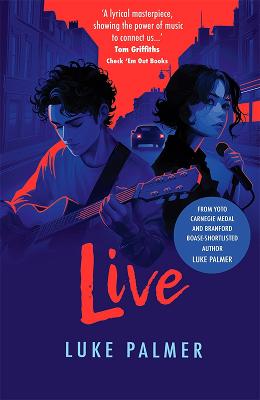 Live
Live
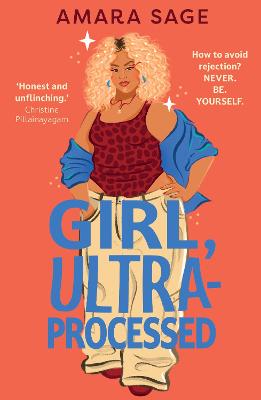 Girl, Ultra-Processed: A bold, body-positive YA about friendship, dating and self-love.
Girl, Ultra-Processed: A bold, body-positive YA about friendship, dating and self-love.
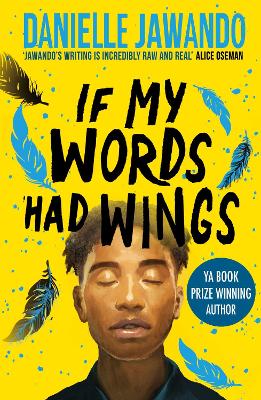 If My Words Had Wings
If My Words Had Wings
